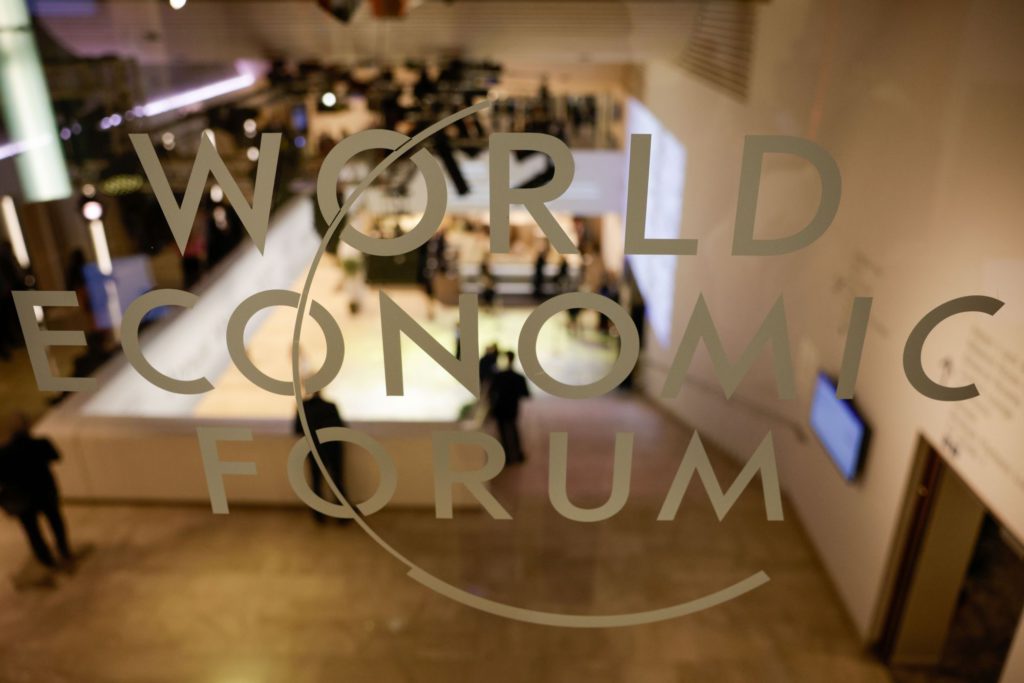(Bloomberg) — UBS Group AG Chief Executive Officer Ralph Hamers said wealthy clients are sticking with their investments, though not necessarily putting new money into the market amid uncertainty over where the world is heading.
After a series of shocks, “of course it is unclear at this moment in time,” Hamers said in a Bloomberg Television interview on Tuesday at the World Economic Forum in Davos, adding that he expects more clarity in a few months.
European Central Bank President Christine Lagarde sought to provide a path ahead, saying the euro area will leave the era of negative interest rates in the coming months as the currency bloc has reached a “turning point” in monetary policy.
In an exclusive Bloomberg TV interview, she added that a recession isn’t the central bank’s base-line scenario for the euro zone.
Russia’s war in Ukraine is hanging over the gathering in the Swiss Alps as global leaders also grapple with energy inflation, food shortages and climate change.
Speeches by Spanish Prime Minister Pedro Sanchez, European Commission President Ursula von der Leyen and NATO Secretary General Jens Stoltenberg are among highlights on the second day of the in-person event, which returned after a two-year hiatus due to the pandemic.
Key Developments
- Lagarde Says Recession Is Not ECB Baseline for the Euro Area
- Ukraine Urges Musk’s Starlink to Keep Helping Alongside Weapons
- Latvia’s President Wants a NATO Brigade to Deter Russia
All times CET:
UBS Sees Clouds Clearing in the Next Three Months (9:15 a.m.)
UBS CEO Hamers said that he expects to see more clarity in global markets within the next three months as clients digest the fallout from recent geopolitical events.
“We had to digest three major shocks: the pandemic shock, the war shock and the energy-transition shock,” he said. “Supply shocks and demand shocks all mixed in one.”
Wealthy clients, he said, aren’t panicking.
They are staying invested, though not necessarily putting new money into the market. “I’m not sure they’re worried about what’s coming,” Hamers said. “It’s just they don’t know what’s coming.”
Recession Not ECB Baseline, Lagarde Says (9 a.m.)
Lagarde rejected the idea that the euro area is heading for a recession for the time being, while acknowledging the need to be “very attentive” to economic developments.
“We don’t have that as a baseline,” she said.
“We are not in a panic mode,” she added. “We are now at a stage where there is every certainty that we will stop net assets purchases very early in July, deciding so in June, which will then clear the way for rate hikes that will come reasonably shortly after that.”
Lagarde: Monetary Policy at ‘Turning Point’ (8:50 a.m.)
Lagarde said she decided to set out the future path of monetary policy in a blog post on Monday in part to address “expectations that were not necessarily founded.”
Read more: Lagarde’s Rate-Hike Plan Irks Some at ECB Who Want Faster Option
“We are clearly now at a turning point, and I thought it was appropriate at this point to explain what the journey is, what the direction of travel is, what the destination is in the relatively short term and what is our aim point as well,” Lagarde said in an interview with Bloomberg TV.
“I thought it was a good time given the combination of volatility that was out there, expectations that were not necessarily founded and the strong convergence that arose from the Governing Council due to the multiple positions as expressed during the last few days,” she added.
Top Polluters Face $67 Trillion Bill to Hit Climate Goal (8:45 a.m.)
The world’s seven-biggest polluters will have to spend $67 trillion by the end of this decade to stay on the path of achieving climate neutrality mid-century, according to a report from Polish Economic Institute that’s due to be presented in Davos on Tuesday.
The economies — China, the US, the EU, Brazil, India, Russia and Japan — are responsible for 70% of global greenhouse gas emissions.
Their efforts are key for the world to meet the goals of the 2015 Paris Agreement to limit warming to “well below” 2 degrees Celsius above preindustrial levels.
With current investment pledges to green their economies, the EU will reach climate neutrality in 2056, followed by the US four years later and China only in 2071 — 11 years later than its target, according to the report.
Russia won’t be able to reach climate neutrality until 2086.
Edelman CEO Praises More Intimate, ‘Less Cold’ Davos (7:25 a.m.)
Richard Edelman, chief executive officer of public-relations firm Edelman, said he was a fan of this year’s iteration of Davos saying its smaller scale was provoking better conversations.
“Davos has been actually great because its smaller, CEOs are really looking to talk,” Edelman said in a Bloomberg Television interview.
Plus, he said, it is “less cold.”
More stories like this are available on bloomberg.com
©2022 Bloomberg L.P.











